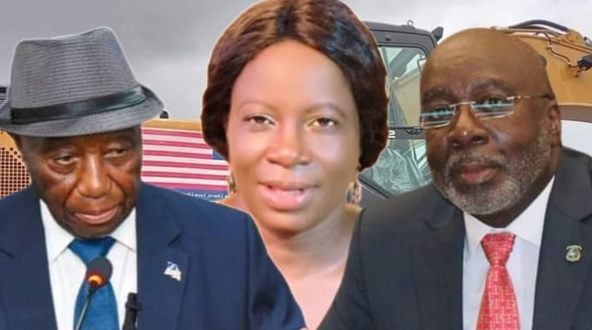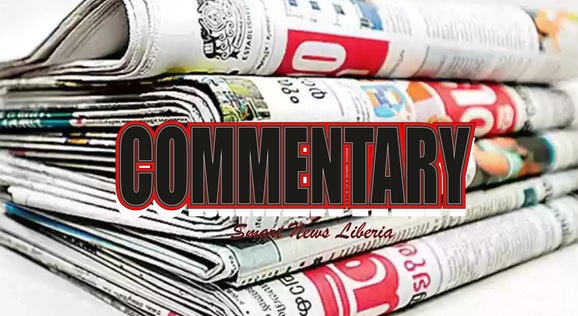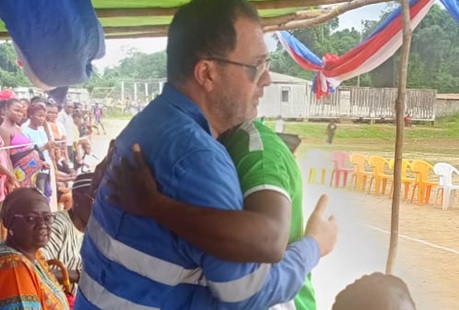Recent events in Liberia have sparked intense debate over the relationship between the legislature and the executive branch. Allegations of the president’s disregard for legal procedures have raised significant concerns about governance, transparency, and the separation of powers.
The procurement of 285 earth-moving machines in Liberia has come under intense scrutiny due to the absence of proper procurement and legislative approval. Liberian journalist Socrates Smythe Saywon, who has been closely following and documenting the developments in this unfolding situation, indicated that President Joseph Nyuma Boakai committed the country to these machines without the necessary authorization, raising serious concerns about governance and transparency.
The Chairman of the Liberty Party, Musa H. Bility, has publicly criticized the government of Liberia, specifically targeting President Joseph Boakai’s administration, for the procurement of 285 earth-moving machines intended for infrastructure and agricultural development. Bility claims that the procurement process failed to adhere to legal protocols, including the Public Procurement and Concessions Commission (PPCC) guidelines, and that lawmakers were not informed about the acquisition details. Bility, who represents Nimba County District #7, issued a statement urging his colleagues in the Legislature to take action against the Executive’s alleged breach of procedure. In his statement, dated Sunday, July 7, 2024, he stressed the importance of rejecting the procurement deal to uphold constitutional integrity and serve the nation’s best interests. He emphasized that while infrastructure improvements are crucial, the terms of the current deal do not align with Liberia’s constitutional responsibilities.
The controversy heightened on Saturday, July 6, 2024, when neither a sector minister nor a legislator was present to receive the machines. Instead, Madam Mamaka Bility, the Minister of State Without Portfolio, assumed responsibility, showcasing over 31 units from the initial batch of machines. Critics perceived this move as an attempt to salvage the UP government’s damaged reputation. Despite the significant investment, the machines were not delivered to the designated sector agency compound but were instead transported to Monrovia’s Barclay Training Center (BTC), further fueling public outrage.
The situation has sparked widespread debate among Liberians, questioning whether the country is now operating under a twisted definition of right and wrong, influenced by political standing. The lack of accountability and adherence to proper procedures highlights a troubling trend that undermines public trust in the government’s ability to manage resources effectively. The unauthorized procurement process has led to significant public dissatisfaction and mistrust in the government. When leaders bypass established protocols and legislative oversight, it erodes the foundation of democratic governance and transparency, leading citizens to question the integrity of their leaders.
The absence of sector ministers and legislators in the procurement and reception of the machines indicates a severe lack of accountability. This could set a dangerous precedent where significant government decisions and expenditures are made without appropriate oversight, risking mismanagement and corruption. By diverting the machines to a military barrack instead of the sector agency compound, there is a risk that the intended use of these resources may be compromised. This misallocation can hinder the machines’ effectiveness in addressing the country’s infrastructure needs, thereby wasting public funds.
The controversy has the potential to deepen political divides within the country. As citizens and opposition parties criticize the government’s actions, the resulting tension could lead to increased political instability, hampering efforts towards national development and cohesion. Such controversies can tarnish Liberia’s international reputation, potentially affecting foreign investment and aid. Donors and investors seek stable and transparent governance, and repeated instances of unauthorized procurements can deter international support.
If utilized properly, the 285 earth-moving machines have the potential to significantly advance Liberia’s infrastructure. These machines can aid in constructing roads, bridges, and other critical infrastructure projects, which are essential for economic growth and development. The deployment of these machines can create numerous jobs for Liberians, both in operating the machinery and in the construction projects they support. This can stimulate local economies and provide livelihoods for many families. Improved infrastructure can lead to enhanced economic activities by facilitating easier and more efficient movement of goods and people. This can boost trade, attract investment, and ultimately contribute to overall economic growth.
The controversy could serve as a catalyst for governmental reflection and reform. In response to public outcry, there might be a push towards greater transparency, accountability, and adherence to procurement laws in the future, strengthening the democratic process. While the procurement of 285 earth-moving machines presents potential benefits for Liberia’s development, the controversy surrounding the unauthorized process underscores significant governance issues. The incident highlights the need for transparency, accountability, and adherence to due process in government operations to build public trust and ensure the effective use of resources. Addressing these issues is crucial for fostering a stable political environment and achieving sustainable national growth.







